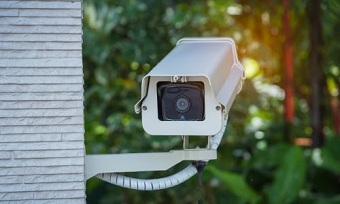The Baltimore County Council has unanimously voted for a bipartisan bill that would create a voluntary private security camera registry for property owners who have devices pointed toward a public right-of-way. The bill is aimed at helping police more quickly track down possible video evidence of crimes.
The program would map where cameras are located to help detectives identify possible security footage in areas where crimes occurred, the Baltimore Sun reports. The council adopted an amendment to encourage property owners to register all cameras, regardless of whether they face public space. All that residents would need to do to participate in the program is submit their contact information, the council said.
To incentivise program participation, the proposal allows the county to waive alarm permitting fees for new alarm system installations — which start as low as $34 for homes and $113 for commercial buildings — that include private security or surveillance cameras. The county would also waive fees for any updates to current alarm systems that include security cameras. Program participants would also receive one waiver for a false alarm call each year. Registration would expire after two years, but residents would be allowed to renew their participation. The council previously proposed two waivers but that was amended to one, the newspaper reports.
Documents show that the County Office of Budget and Finance estimates that the program will cost the county $400,000, including $65,000 in ongoing personnel costs, $235,000 in forgone revenues primarily due to reduced false alarm fees, and $100,000 in one-time technology start-up costs. The office’s estimate assumes revenue from third and successive false alarms last year would no longer be collectible due to the legislation. It assumes revenue collected for the third and fourth false alarms would reduce the forgone revenue estimate by $56,000.
However, the finance office stated that reducing the number of false alarm waivers from two to one would reduce the county’s overall fiscal impact estimate to $285,000, the newspaper reports. Cost savings from the Police Department’s reduced need to seek out video footage from private cameras “could potentially more than offset” the estimated ongoing costs of the program.








